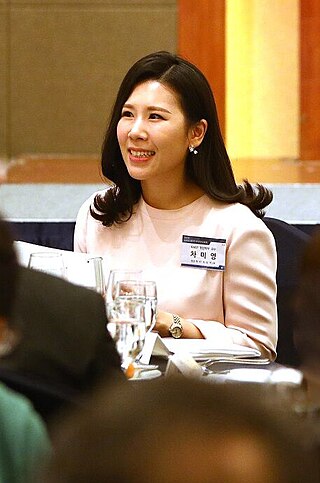
Visualization, also known as Graphics Visualization, is any technique for creating images, diagrams, or animations to communicate a message. Visualization through visual imagery has been an effective way to communicate both abstract and concrete ideas since the dawn of humanity. from history include cave paintings, Egyptian hieroglyphs, Greek geometry, and Leonardo da Vinci's revolutionary methods of technical drawing for engineering purposes that actively involve scientific requirements.
Ronald Jay "Ron" Brachman is the director of the Jacobs Technion-Cornell Institute at Cornell Tech. Previously, he was the Chief Scientist of Yahoo! and head of Yahoo! Labs. Prior to that, he was the Associate Head of Yahoo! Labs and Head of Worldwide Labs and Research Operations.
The following outline is provided as an overview of and topical guide to human–computer interaction:
Social computing is an area of computer science that is concerned with the intersection of social behavior and computational systems. It is based on creating or recreating social conventions and social contexts through the use of software and technology. Thus, blogs, email, instant messaging, social network services, wikis, social bookmarking and other instances of what is often called social software illustrate ideas from social computing.
The Pittsburgh Supercomputing Center (PSC) is a high performance computing and networking center founded in 1986 and one of the original five NSF Supercomputing Centers. PSC is a joint effort of Carnegie Mellon University and the University of Pittsburgh in Pittsburgh, Pennsylvania, United States.

Alex Paul "Sandy" Pentland is an American computer scientist, HAI Fellow at Stanford, Toshiba Professor at MIT, and serial entrepreneur.
Ekaterini Panagiotou Sycara is a Greek computer scientist. She is an Edward Fredkin Research Professor of Robotics in the Robotics Institute, School of Computer Science at Carnegie Mellon University internationally known for her research in artificial intelligence, particularly in the fields of negotiation, autonomous agents and multi-agent systems. She directs the Advanced Agent-Robotics Technology Lab at Robotics Institute, Carnegie Mellon University. She also serves as academic advisor for PhD students at both Robotics Institute and Tepper School of Business.
Amit Sheth is a computer scientist at University of South Carolina in Columbia, South Carolina. He is the founding Director of the Artificial Intelligence Institute, and a Professor of Computer Science and Engineering. From 2007 to June 2019, he was the Lexis Nexis Ohio Eminent Scholar, director of the Ohio Center of Excellence in Knowledge-enabled Computing, and a Professor of Computer Science at Wright State University. Sheth's work has been cited by over 48,800 publications. He has an h-index of 117, which puts him among the top 100 computer scientists with the highest h-index. Prior to founding the Kno.e.sis Center, he served as the director of the Large Scale Distributed Information Systems Lab at the University of Georgia in Athens, Georgia.
The Network Science Collaborative Technology Alliance (NS CTA) is a collaborative research alliance funded by the US Army Research Laboratory (ARL) and focused on fundamental research on the critical scientific and technical challenges that emerge from the close interdependence of several genres of networks such as social/cognitive, information, and communications networks. The primary goal of the NS CTA is to deeply understand the underlying commonalities among these intertwined networks, and, by understanding, improve our ability to analyze, predict, design, and influence complex systems interweaving many kinds of networks.

Eric Joel Horvitz is an American computer scientist, and Technical Fellow at Microsoft, where he serves as the company's first Chief Scientific Officer. He was previously the director of Microsoft Research Labs, including research centers in Redmond, WA, Cambridge, MA, New York, NY, Montreal, Canada, Cambridge, UK, and Bangalore, India.

Prabhakar Raghavan is a business executive and former researcher of web information retrieval. He is a senior vice president at Google, where he is responsible for Google Search, Assistant, Geo, Ads, Commerce, and Payments products. His research spans algorithms, web search and databases. He is the co-author of the textbooks Randomized Algorithms with Rajeev Motwani and Introduction to Information Retrieval.

Usama M. Fayyad is an American-Jordanian data scientist and co-founder of KDD conferences and ACM SIGKDD association for Knowledge Discovery and Data Mining. He is a speaker on Business Analytics, Data Mining, Data Science, and Big Data. He recently left his role as the Chief Data Officer at Barclays Bank.

Qiang Yang is the Chair Professor, Department Head of CSE, HKUST in Hong Kong and University New Bright Professor of Engineering and Chair Professor from 2015. He was the founding head of Noah's Ark Lab. He had taught at the University of Waterloo and Simon Fraser University. His research interests are data mining and artificial intelligence.
The GESIS – Leibniz Institute for the Social Sciences is the largest German infrastructure institute for the social sciences. It is headquartered in Mannheim, with a location in Cologne. With basic research-based services and consulting covering all levels of the scientific process, GESIS supports researchers in the social sciences. As of 2017, the president of GESIS is Christof Wolf.
A deductive classifier is a type of artificial intelligence inference engine. It takes as input a set of declarations in a frame language about a domain such as medical research or molecular biology. For example, the names of classes, sub-classes, properties, and restrictions on allowable values. The classifier determines if the various declarations are logically consistent and if not will highlight the specific inconsistent declarations and the inconsistencies among them. If the declarations are consistent the classifier can then assert additional information based on the input. For example, it can add information about existing classes, create additional classes, etc. This differs from traditional inference engines that trigger off of IF-THEN conditions in rules. Classifiers are also similar to theorem provers in that they take as input and produce output via first-order logic. Classifiers originated with KL-ONE frame languages. They are increasingly significant now that they form a part in the enabling technology of the Semantic Web. Modern classifiers leverage the Web Ontology Language. The models they analyze and generate are called ontologies.

Shlomo Zilberstein is an Israeli-American computer scientist. He is a Professor of Computer Science and Associate Dean for Research and Engagement in the College of Information and Computer Sciences at the University of Massachusetts, Amherst. He graduated with a B.A. in Computer Science summa cum laude from Technion – Israel Institute of Technology in 1982, and received a Ph.D. in Computer Science from University of California at Berkeley in 1993, advised by Stuart J. Russell. He is known for his contributions to artificial intelligence, anytime algorithms, multi-agent systems, and automated planning and scheduling algorithms, notably within the context of Markov decision processes (MDPs), Partially Observable MDPs (POMDPs), and Decentralized POMDPs (Dec-POMDPs).
Natasha Fridman Noy is a Russian-born American Research scientist who works at Google Research in Mountain View, CA, who focuses on making structured data more accessible and usable. She is the team leader for Dataset Search, a web-based search engine for all datasets. Natasha worked at Stanford Center for Biomedical Informatics Research before joining Google, where she made significant contributions to ontology building and alignment, as well as collaborative ontology engineering. Natasha is on the Editorial Boards of many Semantic Web and Information Systems publications and is the Immediate Past President of the Semantic Web Science Association. From 2011 to 2017, she was the president of the Semantic Web Science Association.

Cha Meeyoung, sometimes known as Mia, is an associate professor at KAIST in the School of Computing and a chief investigator in the Pioneer Research Center for Mathematical and Computational Sciences at the Institute for Basic Science. Her research focuses on network and data science with an emphasis on modeling, analyzing complex information propagation processes, machine learning-based computational social science, and deep learning. In June 2024, she will become the scientific director of the Max Planck Institute for Security and Privacy. She has served on the editorial boards of the journals PeerJ and ACM Transactions on Social Computing.
David C. Parkes is a British-American computer scientist. He is the George F. Colony Professor of Computer Science and Co Faculty Director of the Harvard Data Science Initiative. From 2013–17, he was Area Dean for Computer Science. Parkes is a Fellow of the Association for the Advancement of Artificial Intelligence (AAAI) and the Association for Computing Machinery (ACM). He was named dean of the Harvard John A. Paulson School of Engineering and Applied Sciences in 2023.
Kai Shu is a computer scientist, academic, and author. He is a Gladwin Development Chair Assistant Professor at the Illinois Institute of Technology.








